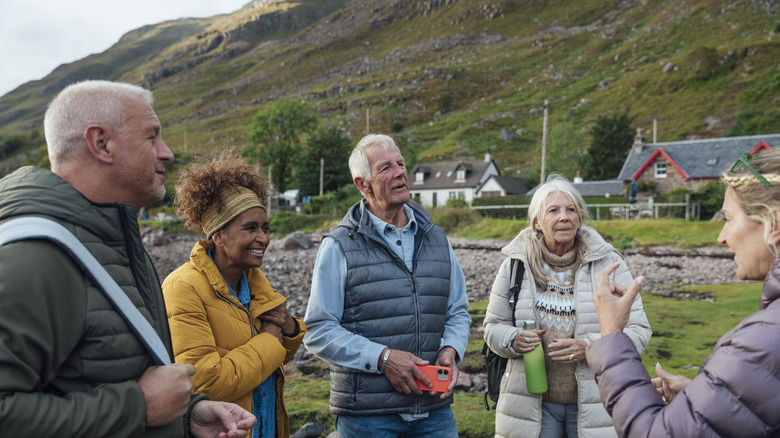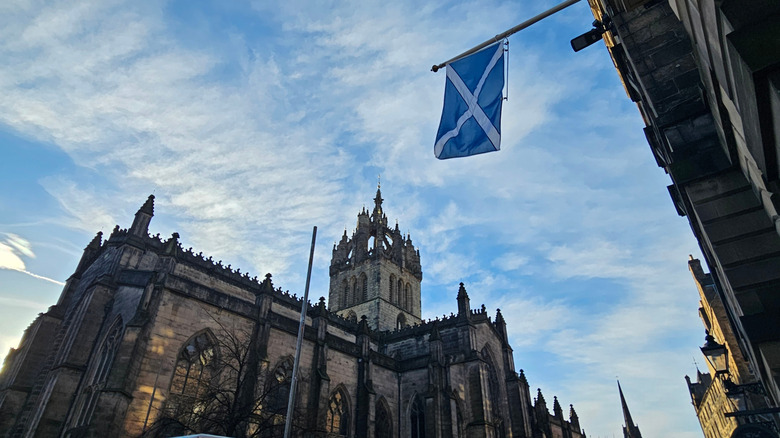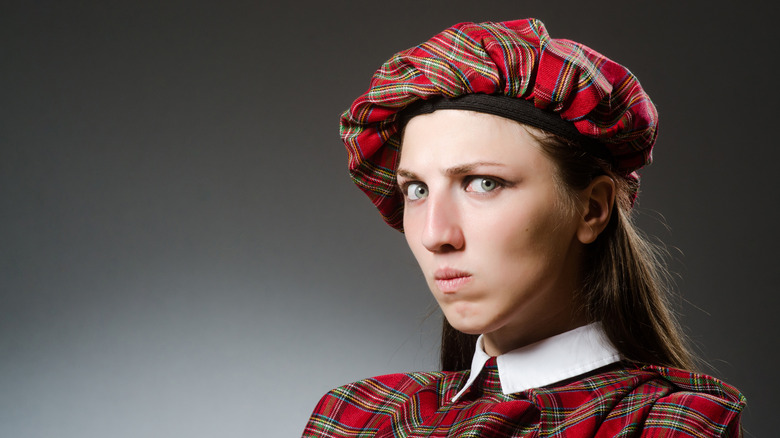The One Mistake Travelers Make In Scotland That Locals Find More Cringey Than Charming
Scotland is one of Europe's most alluring destinations, with a gorgeous coastline, windswept islands, moody moorland, rugged highlands, and historic towns, like this stunning city that makes for a captivating solo adventure. Scotland is a country with its own unique traditions and charms, and even though it occupies the same island as England and Wales, in many ways it seems like another world.
You see this — or rather hear this — in the way the locals speak. Scotland is home to at least 10 distinct dialects — some of which can be very difficult for outsiders to decipher. Most of the time, however, you'll not only be able to make out what the locals are saying, but be charmed by just how they're saying it. Let's face it, the Scottish accent is beguiling, so much so that it's hard to resist the temptation to have a go at it yourself.
As fun as this may seem, it's probably not a good idea, because unless you're a professional voice actor or hail from Scotland, your attempt is almost guaranteed to fall flat. It could also come across as disrespectful to the people hosting you, so think twice before putting on a fake brogue.
A charming accent birthed from a historic language
The Scottish accent, with its signature rolling r's, elongated vowels, and glottal stops, actually comes from Scots, the traditional language spoken in that part of Britain for hundreds of years. While some argue that Scots is a dialect of English rather than its own independent tongue, the language traces its roots back to the Angles, a Germanic tribe who arrived in what is now southeastern Scotland in around 600AD.
Over time, the English language began to exert its influence up north — especially after the union between Scotland and England that formed the United Kingdom in 1707 — and Scots began to fade away. While there are still plenty of Scots speakers in Scotland (almost half the population claims to be conversant), the vast majority of people speak "Scottish English" in their daily lives. This means that while the old dialect may be harder to hear, the iconic accent it birthed lives on.
The Scottish accent has long claimed a prominent place in American pop culture, from "Star Trek's" Scotty to Mel Gibson in "Braveheart." Often this has included cartoonish characters such as Fat Bastard from "Austin Powers," or even actual cartoons — most famously "Shrek" and Groundskeeper Willie from "The Simpsons". This has planted an over-the-top, exaggerated version of the Scottish accent in many peoples' heads, so if you actually go to Scotland and try it out on the locals, odds are you'll come across as doing a cringeworthy imitation. Scottish people are quite proud of the way they speak, so at worst they'll think you're mocking them. This is never a good look for a traveler, so do yourself a favor and leave the fake accent at home.
Other things to know about visiting Scotland
Understanding the Scottish accent can definitely be challenging, especially in Glasgow and the city of Aberdeen. Most Scottish people realize this and will not be taken aback if you politely ask them to repeat themselves, so don't be shy if you don't catch what they say the first time around. Also, Scottish people can sometimes be brusque in a way that can come across as off-putting, but it's often a way they express affection, so don't be offended if someone is quite direct when speaking with you.
Nobody wants to be an annoying tourist in Europe, and that goes for Scotland. So try to avoid talking politics — especially when it comes to their complicated relationship with England — and also be careful when bringing up soccer, even though it's by far the most popular sport. Locals will likely bristle at the term, as they call it "football," and which team someone supports can also denote their political and religious loyalties, a sensitive subject that is best left alone.
Most importantly, even if your great-grandfather emigrated from Scotland and you're still proud, never call yourself "Scottish" if you don't have a direct and modern connection to the country (such as actual Scottish parents). Though you may just be referring to your ancestry, to say that you're "Scottish" will likely rub locals the wrong way, as if you're claiming membership in a club to which you don't belong. That said, politely mentioning that you have ancestral roots to the country is fine and will often be met with curiosity, but only claim the actual nationality on your passport. Also, given Scotland's cold, drizzly weather, you should think carefully about what clothes to pack before traveling there.


